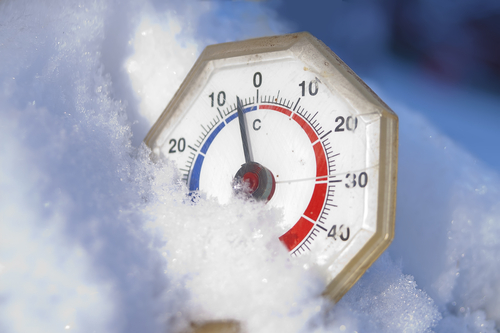Today’s Advisor reports on the costs and consequences of winter-related accidents in the workplace—and what steps you can take to avoid winter woes at work.
 |
“Winter-related slips and falls have a significant negative impact on American businesses each year, resulting in time off work, temporary employee costs, overtime for existing employees, and increased insurance costs,” said Mike Britt, president of Accident Fund Insurance Company of America. “To avoid these costs this winter, employers need to be extra vigilant, and employees should exercise extreme caution in the months ahead,” Britt states, adding that in the Midwest states last winter, one-third (29 percent) of workers’ compensation claims resulted from slips and falls.
As temperatures drop and winter hazards increase, the Michigan Department of Licensing and Regulatory Affairs’ Michigan Occupational Safety and Health Administration (MIOSHA) and the Michigan Workers’ Compensation Agency (WCA) are reminding employers and employees to exercise caution when working in the cold and snow.
“Every employer should have an effective safety and health management system in place to protect its most valuable asset: its employees,” said MIOSHA Director Martha Yoder. “As part of this program, they should prepare for winter conditions and provide helpful information to their employees on how to avoid injury and illness.”
Same-level slips, trips, and falls are occupational hazards that can be found in almost every type of work setting. Download this free survey today to learn more!
“Worker injuries can negatively affect a business’s bottom line, resulting in increased workers’ compensation and insurance costs, overtime, and lost work days for employees,” said WCA Director Kevin Elsenheimer. “By taking the proper safety precautions this winter, job providers can avoid nasty slips and falls that will cost them in the future.”
Lower workers’ comp costs save employers on overhead expenses and give them additional resources to grow their business, hire new workers, and increase their employees’ salaries, says a press release.
Practice these safety tips for winter workplace safety:
- Keep all walkways cleared of ice and snow.
- Have deicing products handy for hard-to-remove ice or snow.
- Make sure all walkways and passageways are clearly marked and well-lighted.
- Clearly mark or barricade hazardous areas.
- Be careful of slippery surfaces inside buildings.
In addition to the above practices, train your employees to take these safety precautions:
- Wear slip-resistant footwear.
- Practice safe walking on slippery surfaces by taking slow, small steps.
- Avoid carrying heavy loads that may offset your balance.
- Wear sunglasses on sunny days to lessen winter glare.
- Take extra precaution when entering and exiting vehicles.
- Know the symptoms of frostbite and the first-aid steps to address it.
The majority of fall-related injuries occur as a result of falls from same-level walking surfaces, according to the Bureau of Labor Statistics (BLS). Find out more.
In tomorrow’s Advisor, we’ll give more precautions you and your employees can take to stay standing on slippery surfaces.
